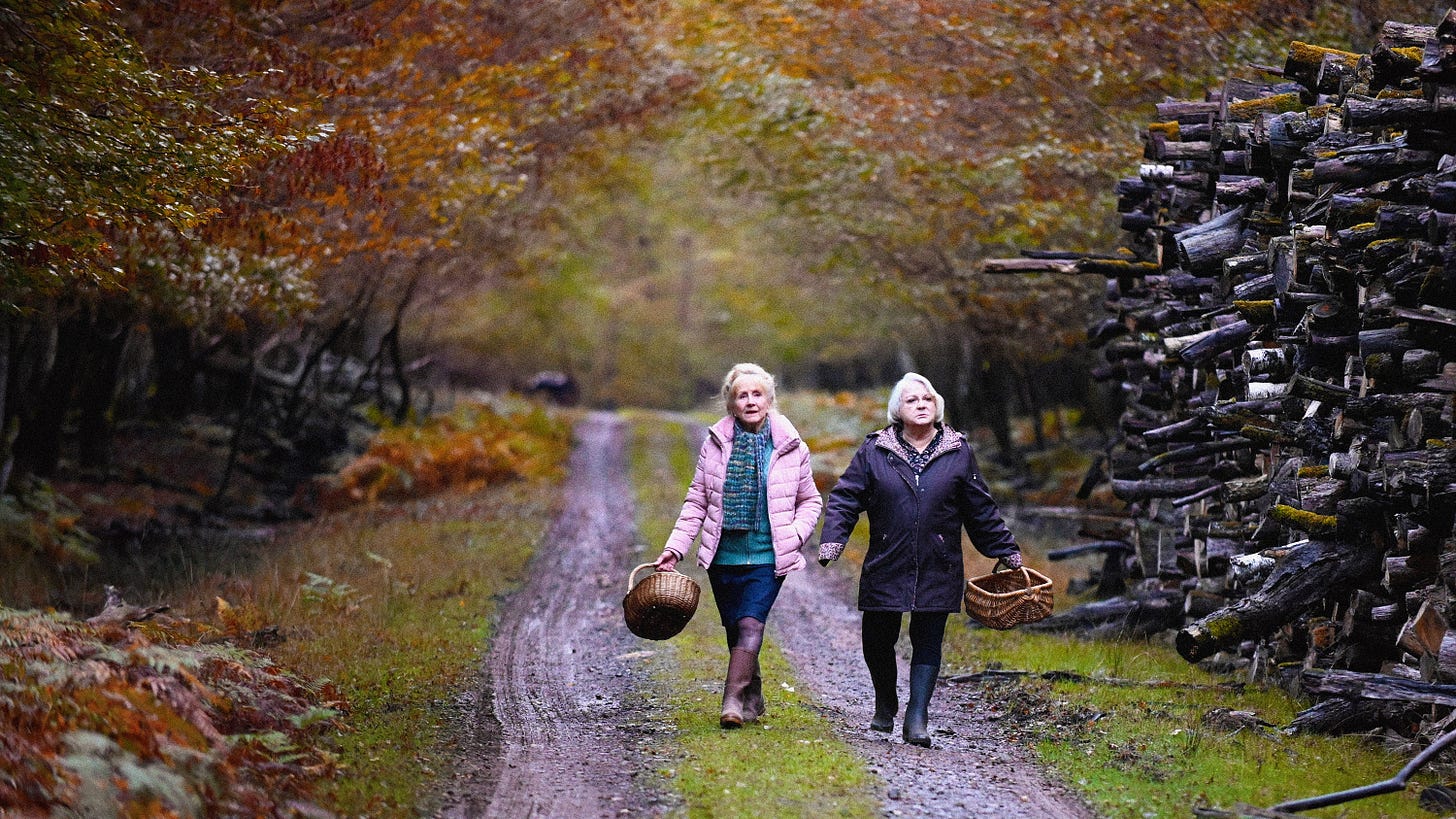François Ozon’s latest work delves deeply into the complexities of family, guilt, and the fragile boundaries between right and wrong. Set in the quiet countryside of Burgundy, “When Fall Is Coming” weaves a subtle yet gripping narrative that explores a mother-daughter relationship strained to the breaking point. Michelle (Hélène Vincent), a retired woman now living a peaceful life after years of turmoil in Paris, is confronted by her adult daughter Valérie (Ludivine Sagnier), whose bitter resentment toward her mother remains an enduring puzzle. The tension between them rises when Valérie, leaves her son with Michelle for a week, offering Michelle an unexpected chance to repair their fractured relationship. But when a culinary accident occurs, the already fragile trust between them begins to crumble.
Ozon, drawing inspiration from his personal history, masterfully builds suspense from the complex moral dilemmas at the heart of the story. The characters—especially Michelle—are left to navigate this grey area, where actions and motives are never fully clear, and the audience is invited to question everything. Michelle’s (Hélène Vincent) performance is a delicate balancing act between fragility and a certain underlying menace. Vincent brings this duality to life, creating a character whose innocence is constantly called into question. As the audience, we are just as lost as Michelle, wondering whether the culinary accident was truly an accident or something darker—perhaps an intentional act rooted in a lifetime of unresolved tensions.
Nature plays a central role in the film, with the scenes of Burgundy captured in warm, inviting colors that evoke both comfort and foreboding. The lush landscape mirrors the internal conflicts of the characters, providing a visual contrast to the sinister undertones of the story. The final frame of the film, hauntingly accompanied by a melancholic score, encapsulates the duality of nature. Just as Michelle’s actions blur the lines between good and bad, nature itself is both beautiful and dangerous, capable of bringing peace or destruction—sometimes simultaneously.
While Michelle is the film’s heart and soul, other characters—such as Valérie (Ludivine Sagnier), Marie-Claude (Josiane Balasko), and Vincent (Pierre Lottin)—also contribute to the overall narrative, even if their stories are less fully developed. The script leaves much to interpretation, which works well for Michelle’s character, as her past with Valérie and the motive behind the accident remain shrouded in mystery. The ambiguity adds to the suspense and depth of the film. However, the same cannot be said for Vincent’s character, a former convict whose story feels more one-dimensional. While Lottin's charisma is evident, the character’s lack of development leaves him feeling disconnected from the more intricate emotional layers explored by the rest of the cast.
Ultimately, “When Fall Is Coming” is a film about the delicate balance between love, guilt, and reparation. Ozon’s direction, combined with Hélène Vincent's captivating performance, keeps the audience engaged from start to finish. While some characters may not receive the depth they deserve, Michelle’s story—interwoven with her complicated relationship with her daughter and the haunting uncertainty surrounding the accidental poisoning—remains compelling and thought-provoking.
Ozon's exploration of family dynamics, moral ambiguity, and the process of reconciliation makes “When Fall Is Coming” a beautifully crafted and haunting film. It’s one of those works that lingers in the mind long after the credits roll, questioning the choices we make and the consequences of the relationships we carry with us throughout our lives.
(Or Paz)




